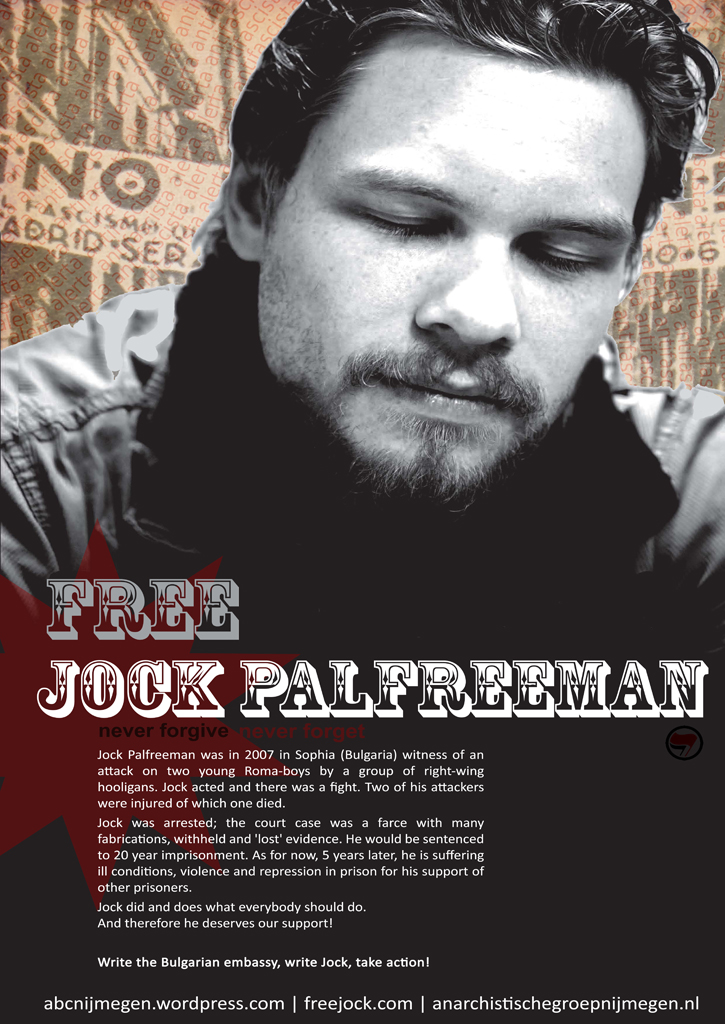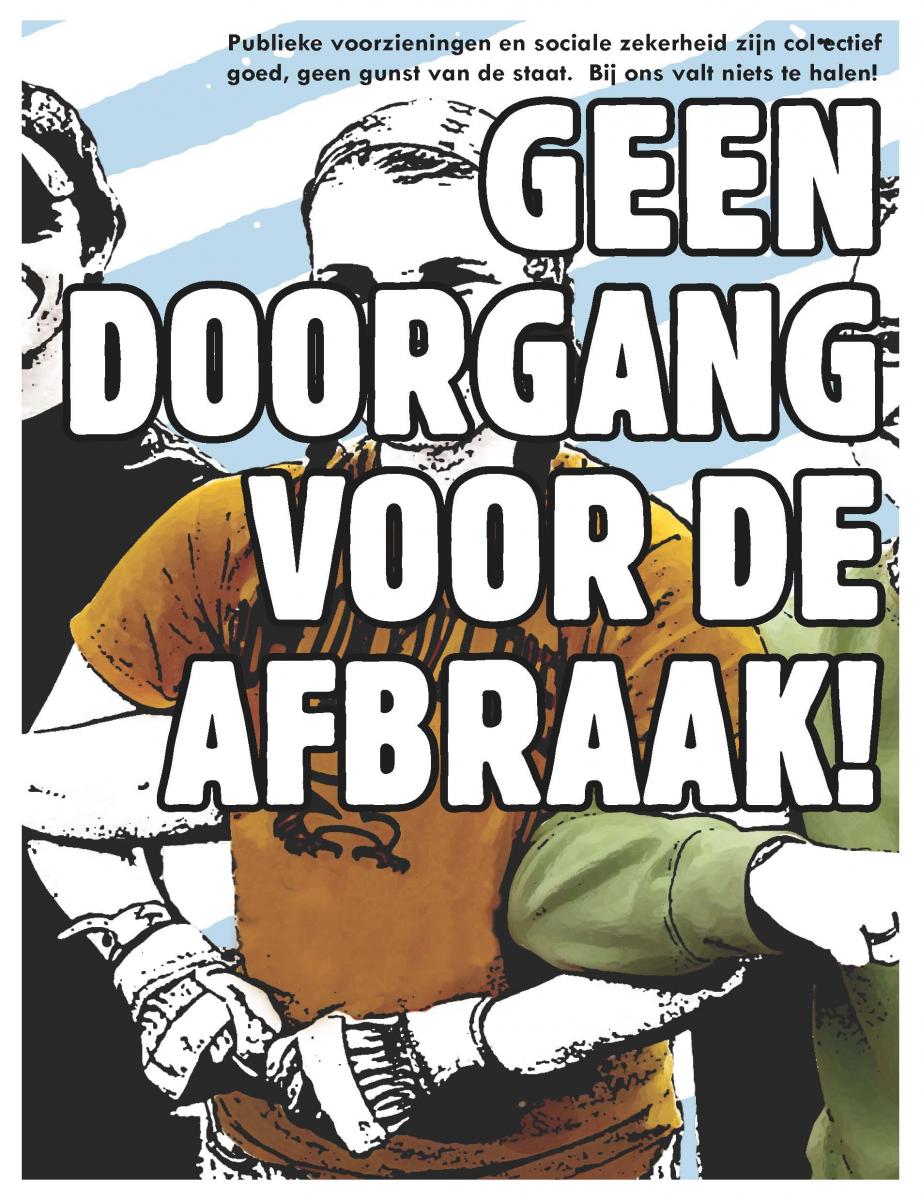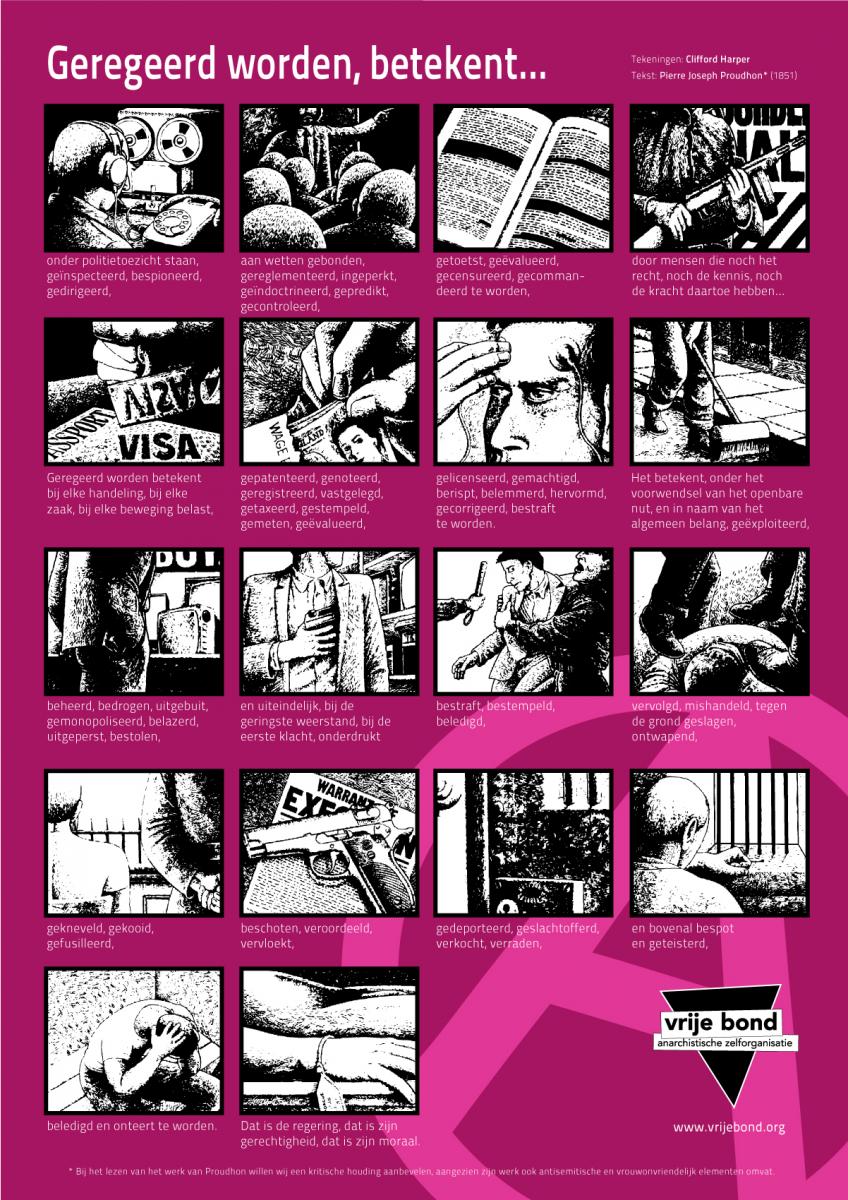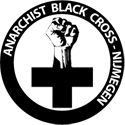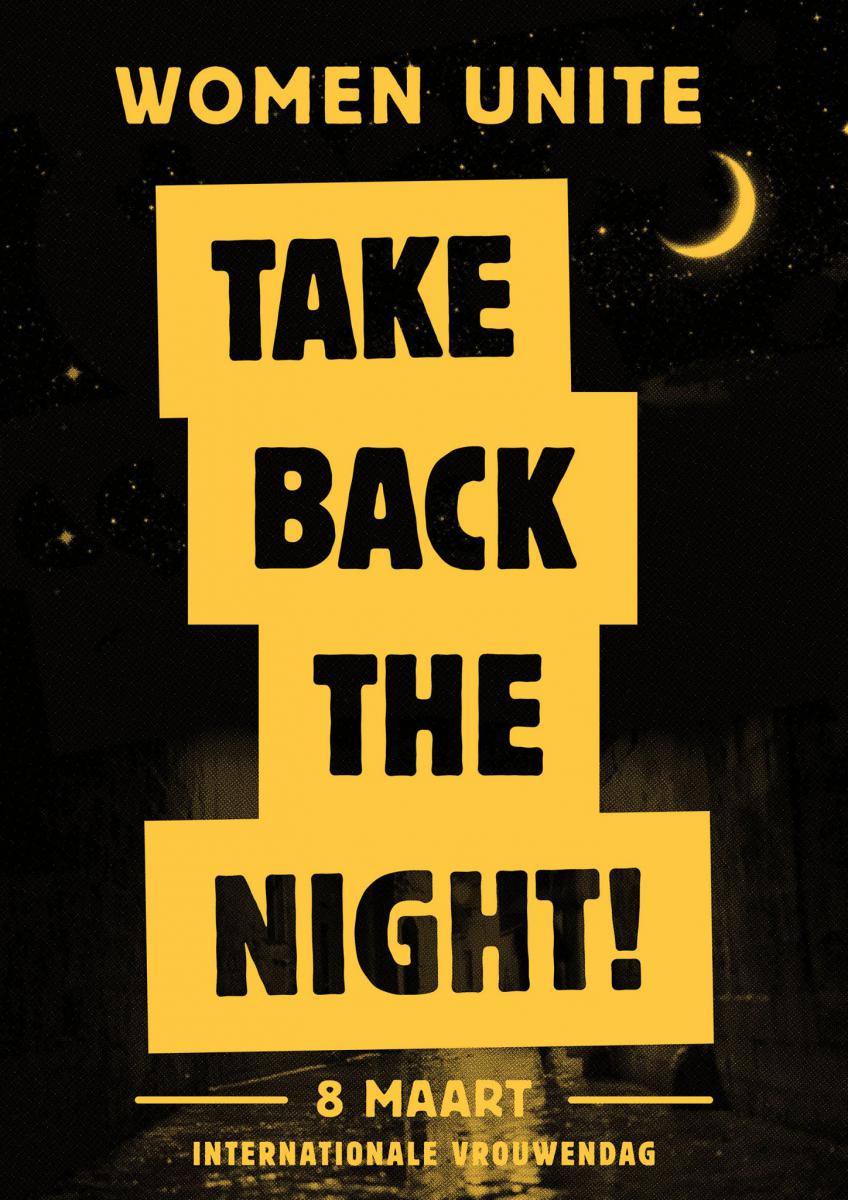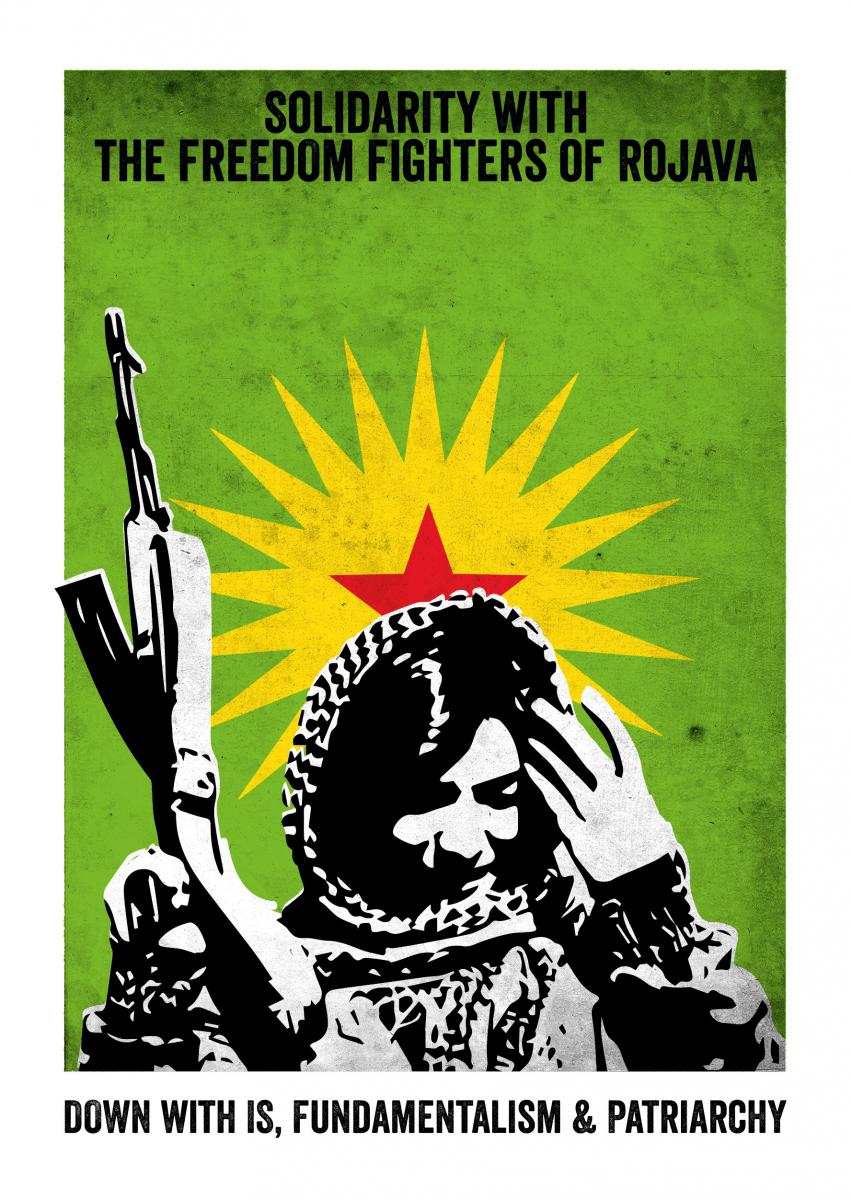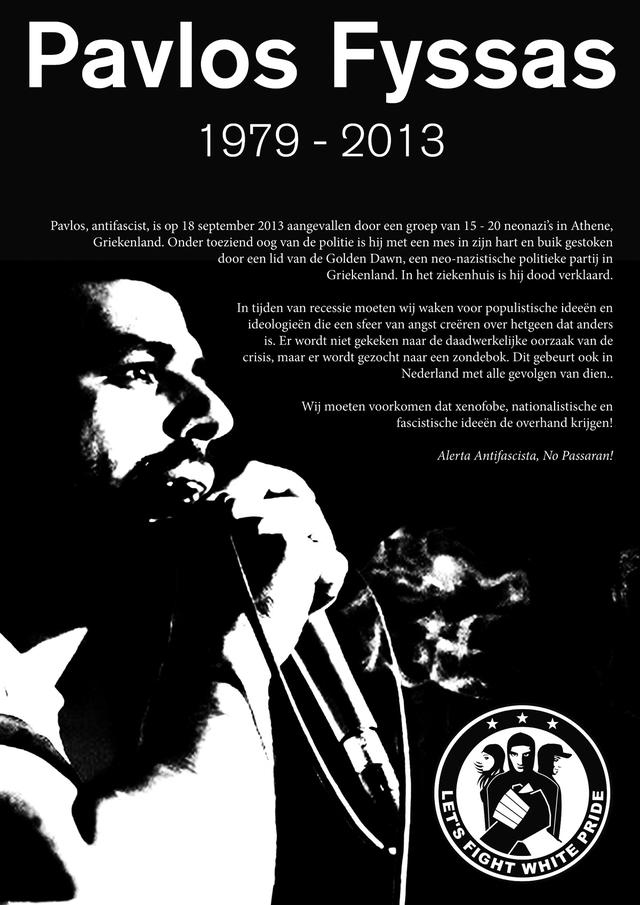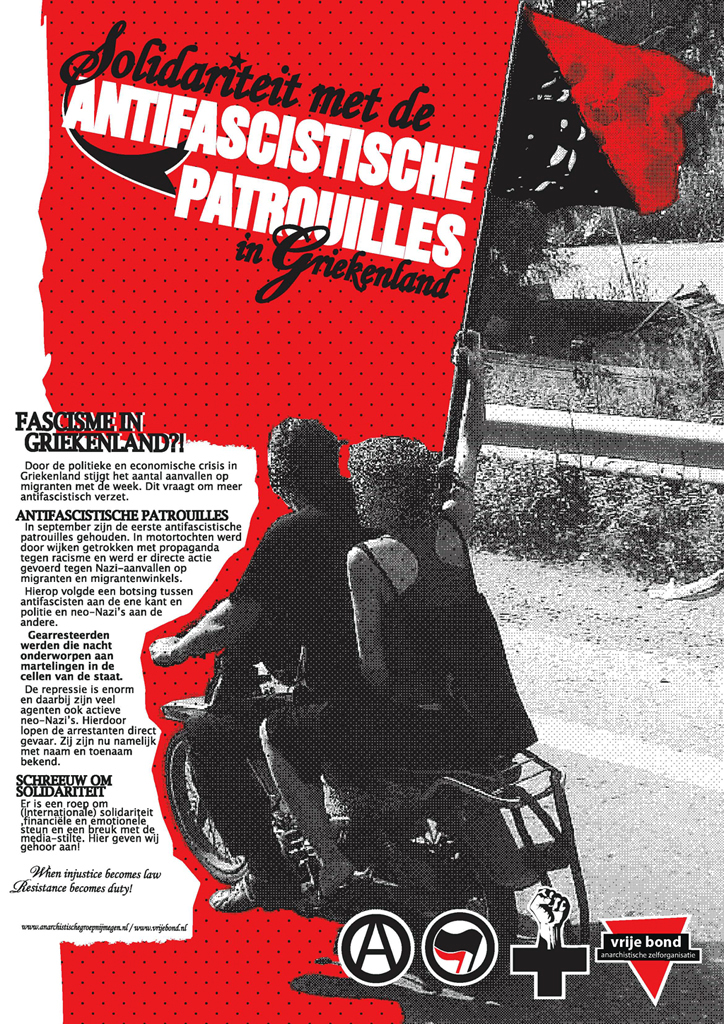Anarchism, class-struggle and punkrock
By Tommy Ryan
Dit artikel werd geschreven voor een zine bij de plaat van Lawine, een Nijmeegse hardcore band.
First of all I would like to state that this is a highly personal and sometimes even speculative analysis. It is based on my own experiences in the Netherlands in the punkrock scene and the social and anarchist movement. It is the result of combining my enjoyment of punkrock music and the development of my anarchist ideas, the latter triggered by the first.
Punkrock has a long relation to anarchism. That is not to say the other way around. Anarchism is a sociopolitical theory that dates back long before anyone had ever heard the blasts of electric guitars or drum kits that are now so common. Where modern anarchist ideas date back to as early as eighteenhundreds, forming itself from a more theoretical, philosophical tradition to a libertarian branch of the labor movement in the end of the ninetieth century. There it started focusing itself on class-struggle and actual physical social restructuring of society putting earlier ideas in practice. With this it took upon itself an active role in social revolutions as the Russian and Spanish Revolution and many other uprisings, from Asia the long way 'round the globe from Europe to North- and South-America.
Punkrock is a relatively young element in society if you look it like that. Looking at its relation to anarchism, it has several origins I think. Mainstream bands like the Sex Pistols adapted anarchist symbols plainly as a method to shock and at the very best as individual hedonism and a statement of anti-establishment. This however had not so much to do with a serious social or political motivations – ones that really wants to pose alternatives to society. This however, becomes more complicated a little later I think. There are multiple factors tough, that created the base for a more long lasting relationship between punk and anarchist ideas.
From Shock-rockers tot Anarcho-punks
There is a reason I think why punkrock has had, next to capitalist relations through marketing stunts of fashiondesigners and recordlabels, also a relation to class- and social struggle. Next to the mainstream bands that got promoted through the major record-labels like EMI and Sony-Music, already in the early days there were many small self-organized bands. Punkrock had in the '70s the revolutionary egalitarian idea that everybody should be able to make music. And this was very rapidly embraced by young working-class kids all over the United Kingdom. Here it is I think a clear and strong anti-establishment message finds its true origin. The reason why shis could especially flourish in the '70s in the UK is that here a clear war of the rich against the poor raged. Punk was a great way for youngsters to express their ideas and frustration on this.
Next to this I think that with the adoption of anarchist symbols its not so weird that there is another parallel reason next to the earlier named relation to class-struggle in punkrock. Where symbols and references are used there will be people who start digging into the meanings and traditions it. This is also where anarcho-punk and the DIY-culture might have developed from: the currents within punk which take an explicit political stance and mostly proclaim anarchist ideas and self-determination through their music.
The collapse of a social movement
With punkrock being a very popular musical current in the '70ths and '80ths, and its clear anti-establishment tendency, I think it found a logical connection with the social movements of that era. Trough this connection a lot of punkrock bands played in squats for instance – the social places to gather.
However, in the beginning of the nineties the social movements started to collapse – which I will not explain thoroughly because that can take another whole essay. This collapse resulted in a smaller and smaller movement which got more incorporated and institutionalized. In this period squatting also became more and more a subcultural habit then a form of popular direct action: directly fulfilling the peoples need for housing while there are vacant buildings. The subculture that developed was then already closely bound with punk. The dropping popularity of punkrock almost goes parallel with this.
When I became active within the social movement, I entered it as a punk. My taste of music was mostly political influenced punkrock. In most places where I came (early 2000) there were still traces of political activism along with a strong bond with punk – at that time mostly crustpunk. At demonstrations there would be punkmusic played (live or records) and in bars in squats punk was the measure. But punk in the end is mostly just a style of music and nowadays enjoys a relatively small amount followers. Where these two worlds are so closely bound it can inevitably only lead to isolation.
Here it is where I think problems enter the picture. From this isolation, combined with skepticism, the anti-establishment and a lack of critical analysis, the punkrock-version of anarchism came to oppose society as a whole instead of the sources of a social disease like hierarchy and socially oppressive institutions and constructs like the State, (institutionalized) religion and capitalism.
With the earlier named decline of the social movement – and its loss of popular support – in combination with isolation and the anti-society tendency of punkrock-anarchism, it lead to a downwards spiral. People (including me) spat on society and created a personalized self ran ghetto. I've been in that ghetto and yes, we had our fun. Sometimes it was a lot easier having the idea that you are right and can dismiss 'them' as wrong. Feeling the comfort of people around you sharing this idea. All that without even having to engage with the rest of society anymore. Another spiral which of course leads to the logical acknowledgment of your skepticism and nihilism.
If that is how we define anarchism, the state and the institutions that we oppose, are well willing to embrace this definition. Its all to easy to alienate it from a broader base of society. However – after years of developing my anarchist ideas – I started to come to the following conclusion: no matter how hard I screamed against society, I've always been a part of it. We humans are social beings who interact with- and depend upon each other. And this is also where our strength lies.
Smashing the punkghetto
In the conclusion that we are part of society – and realizing few can survive without it - lies a grave danger. We all have lost many friends to it probably: the people who lacked a radical perspective both in ideas and possibilities but coming to a similar conclusion – more or less sophisticated – and turning their back to the punkscene and/or social movement. What can you after all do when you (start to) like other music as well while punk is the dominant standard? Or when you are facing new developments in your life and they are not accepted in the dominant subculture? Things like work, love relations, who knows even kids? And imagine you have these features already from the beginning. Why would you even want to bother entering?
Where some leave, others stick around. With them I mean those who don't see the problem, and people like me – who do have a problem with this situation and see the need to break with this tendency. To me this means taking a position (like the historical anarchist movement) where we see ourselves as a part of society which I think should always be the case for anarchists.
To me this does not mean that punkrock should be dismissed from anarchism though, nor that we should accept the values of society. Punkrock can be part of anarchism. But radical ideas must not be restricted to one musical current. And luckily I see this conclusion being made around me more and more.
Different subcultures are adapting to radical politics and DIY'ism. Look for instance at the large number of radical hip-hop and dance acts that seem to step into the newly created openings. Let’s see each other as comrades and although you might not like the music, there is also no reason to dismiss each other. Imagine all that all music and social activities could be enjoyed in a radical perspective. Free from corporate domination and institutionalized restrictions.
Anarchism was once a powerful movement because it was deeply embedded in the working-class struggles and therefore an important player in societies. Let’s start looking beyond the punkrock interpretation and take back that power. Let’s look at which parts of society we actually do like and incorporate them in our own world. For me that does not mean to get rid of the punk inside of me. It is just as much a part of my being as my being is a part of society. Radical elements are that too.



